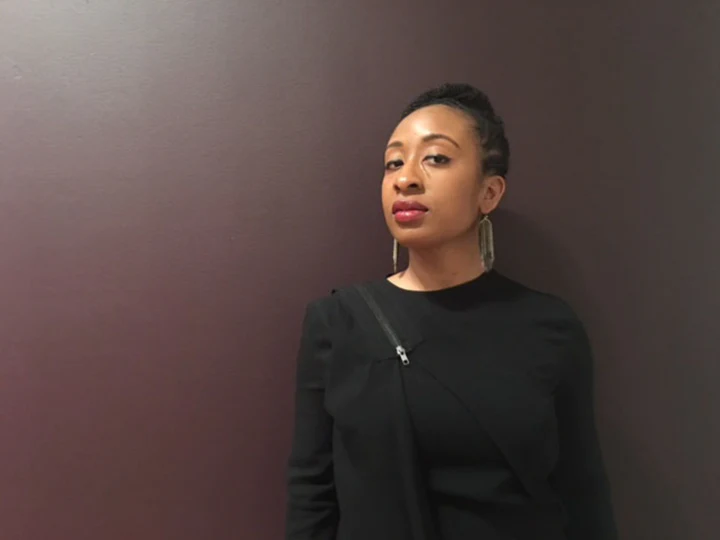Alternative Forms of Learning
Alternative Forms of Learning, a panel discussion
Gardiner Museum, Toronto, ON (Canada), August 17, 2017
This workshop will engage with Negarra Kudumu, who views education as a form of curation, and Timothy Yanick Hunter and Esmaa Mohamoud, members of Black Artists’ Union. They will discuss and engage with ideas of how to consider forms of learning that are wholly representative and unearth unknown histories into more formal education structures. This workshop, which will delve into an improvisation, will be led by August Fröhls and moderated by Pamila Matharu.
About August Fröhls
The August Fröhls collective (led by artists/curators Aman Sandhu and Swapnaa Tamhane) will invite artists and creative practitioners to engage with local forms of storytelling, teaching, object histories, and music, within a site-specific installation on the plaza inspired by the portable classroom.
For artists/curators August Fröhls (Aman Sandhu and Swapnaa Tamhane), a significant amount of their early education in the Greater Toronto Area (specifically Scarborough and Markham) was spent in portable classrooms. Sandhu and Tamhane explore their speculative hypothesis that the presence of portable classrooms at Canadian schools could be viewed in parallel to the influx of immigrants into the Canadian landscape.
Originally intended as temporary space solutions, portable classrooms eventually became permanent infrastructure, set in place to provide extra room for a population growth that the main buildings could not have anticipated. Propositioning the portable as a space for peripheral pedagogy and histories, August Fröhls will create a site-specific outdoor installation harkening to the recognizable materials of the portable structure, and present a series of events that elicit lesser-known histories. Furthermore, operating from a belief that improvisation is a strong catalyst for the unearthing of third-space, collaged histories, improvisation as related to forms of pedagogy, storytelling, and history of objects will be explored throughout the duration of Portable Stories.
About the Speakers
Residing at the intersection of contemporary art, curation, and critical theory, Negarra A. Kudumu‘s practice is situated squarely within the domain of cultural production and consumption. She is ever investigating the ways in which these processes are visually and discursively interpreted, with a special interest in the emerging visual culture of the African continent, Iran, South Asia, and their respective diasporas.
Negarra received her BA from Dartmouth College and her MA from Leiden University. She is Manager of Public Programs at the Frye Art Museum.
Esmaa Mohamoud (b. 1992) is an African-Canadian sculptor/installation artist working in Toronto. Her sculptures and installations focus on the navigation of Black bodies in contemporary spaces. Engaged in the politics surrounding Black male bodies in particular, her recent body of work investigated the (in)tangibility of Blackness through the exploration of athletics—specifically, the sport of basketball. With the use of industrial materials, Mohamoud aims to re-examine our contemporary understanding of Blackness and challenge the relationship of blackness as a colour and shade, and Blackness as a societal or cultural construction of a group of people. Mohamoud graduated from Western University’s Bachelors of Art program in 2014. In 2016, Mohamoud graduated from the Interdisciplinary Arts, Media, and Design Masters Program at the Ontario College of Art and Design University.
Timothy Yanick Hunter (b.1990) is a multi-disciplinary artist based in Toronto, Canada. He is interested in visual arts as language and endeavors to communicate ideas and narratives through aesthetics. He uses his practice as a form of storytelling – his aim is to develop an expansive narrative across mediums; this is motivated by a visceral need to engage with the global community. Hunter graduated from the University of Toronto in 2015, specializing in Art History and English. His practice comprises of painting, collage, installation, and mixed-media works. He considers his approach as [Afro]-futurist, exploring and imagining the possibilities of post-human society.
The Black Artist Union (BAU) assists in the movement and exhibition of artists and creators of the African diaspora. We aim to represent the ideas and work of contemporary black creators. As art being a language to connect with others, this is a platform to help develop skills for navigating and engaging in art spaces.
Black Artist Union Members:
Sylvia Limbana, Aaron Jones, Sydné Barnes, Destiny Grimm, Phillip Saunders, Flimon Yohannes, Ekow Stone Curtia Wright, Oreka James, Timothy Yanick Hunter, Jega Delisca
Pamila Matharu (1973, Birmingham, UK) is a Toronto-based interdisciplinary artist, educator, and cultural producer. Her practice engages close readings of gaps, omissions and fissures of the ‘other’ experience – the unexamined intersectional feminist life. She received her undergraduate degrees in Visual Arts and Fine Arts Education in 2002 from York University, been a grant recipient of the Toronto, Ontario and Canada Art Councils, and has been awarded the Marion McMahon Award (2003 Images Festival), Best Up and Coming Toronto Film/Video Maker (2003 Inside Out Festival). Currently on view; In Another Place, Not Here at Gallery 44 Centre for Contemporary Photography (July 14 – Aug 26), Every, Now, Then: Reframing Nationhood at the AGO (June 28 – Dec 10) and in the upcoming Migrating the Margins at the Art Gallery of York University opening on September 15th.
Matharu is a co-founder of Sister Co-Resister, the collective formerly known as Bonerkill, an feminist art collective focused on collaborative art-making and trans-disciplinary exchange. Crisscrossing public pedagogy, intersectional feminism and contemporary art; Sister Co-Resister works through social practice, installation, performance and publishing, as a catalyst for social change. Sister Co-Resister is: Kiera Boult, Marilyn Fernandes, Ananda Gabo, Ashlee Harper, Shaista Latif, Syliva Limbana, Pamila Matharu, Sofia Mesa, and Annie Wong.
About the Community Arts Space: Art is Change
The Gardiner Museum’s unique history and identity is rooted in the city, but its future is increasingly shaped by those beyond the core cultural corridor. As space increasingly becomes a premium downtown, the Gardiner has collaborated with six cultural and community partners to consider how institutional outreach can be re-shaped by local artists, curators, and architects. Looking to the rapid high-rise developments happening within the Museum’s own Yorkville neighbourhood, the projects in Art is Change consider how the city’s unique and varied local histories of art and social activism can be re-mapped for the future. Learn more

